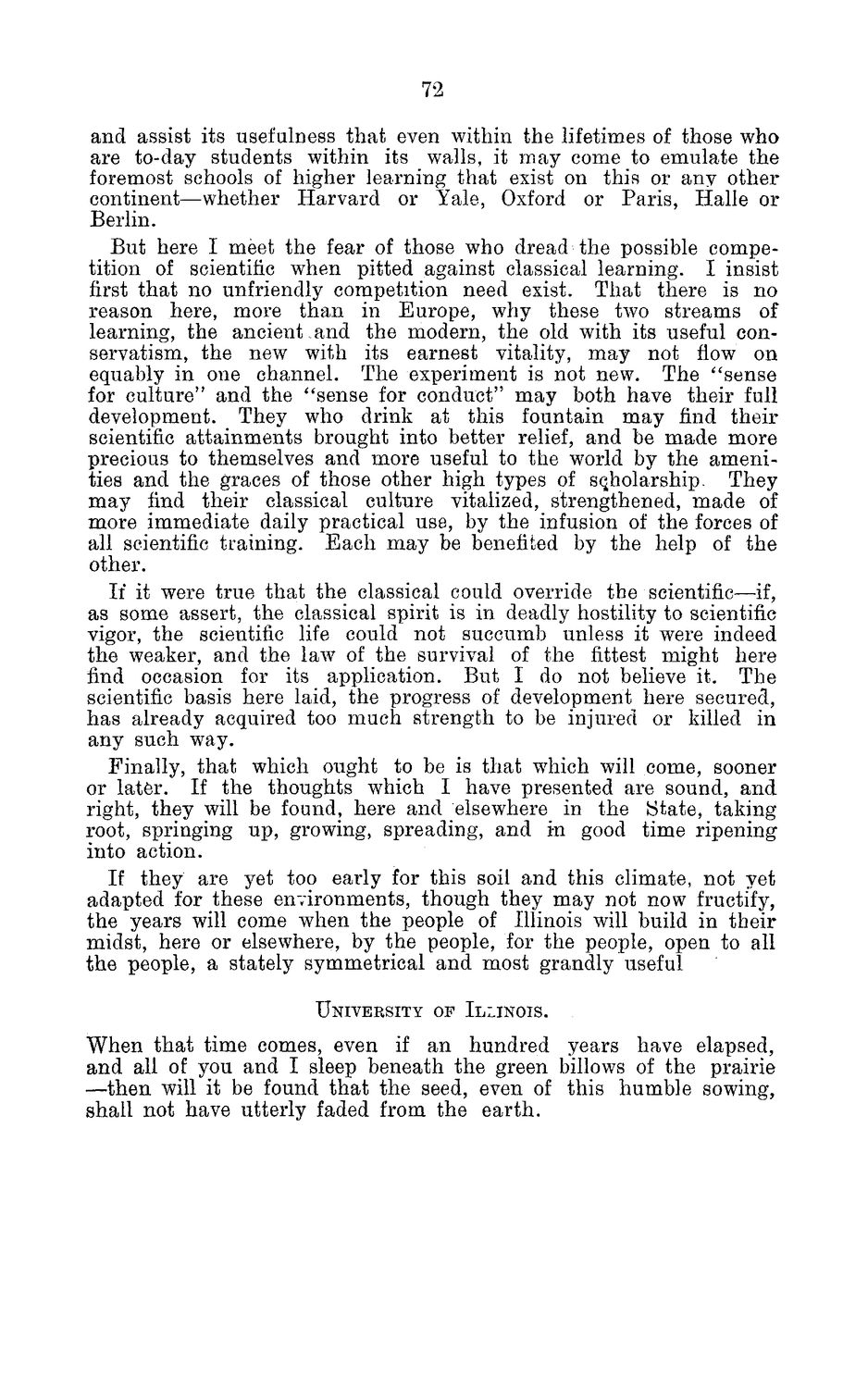| |
| |
Caption: Board of Trustees Minutes - 1884
This is a reduced-resolution page image for fast online browsing.

EXTRACTED TEXT FROM PAGE:
72 and assist its usefulness that even within the lifetimes of those who are to-day students within its walls, it may come to emulate the foremost schools of higher learning that exist on this or any other continent—whether Harvard or Yale, Oxford or Paris, Halle or Berlin. But here I meet the fear of those who dread the possible competition of scientific when pitted against classical learning. I insist first that no unfriendly competition need exist. That there is no reason here, more than in Europe, why these two streams of learning, the ancient.and the modern, the old with its useful conservatism, the new with its earnest vitality, may not flow on equably in one channel. The experiment is not new. The "sense for culture" and the "sense for conduct" may both have their full development. They who drink at this fountain may find their scientific attainments brought into better relief, and be made more precious to themselves and more useful to the world by the amenities and the graces of those other high types of sqholarship. They may find their classical culture vitalized, strengthened, made of more immediate daily practical use, by the infusion of the forces of all scientific training. Each may be benefited by the help of the other. If it were true that the classical could override the scientific—if, as some assert, the classical spirit is in deadly hostility to scientific vigor, the scientific life could not succumb unless it were indeed the weaker, and the law of the survival of the fittest might here find occasion for its application. But I do not believe it. The scientific basis here laid, the progress of development here secured, has already acquired too much strength to be injured or killed in any such way. Finally, that which ought to be is that which will come, sooner or later. If the thoughts which I have presented are sound, and right, they will be found, here and elsewhere in the {State, taking root, springing up, growing, spreading, and in good time ripening into action. If they are yet too early for this soil and this climate, not yet adapted for these environments, though they may not now fructify, the years will come when the people of Illinois will build in their midst, here or elsewhere, by the people, for the people, open to all the people, a stately symmetrical and most grandly useful UNIVERSITY OF ILLINOIS. When that time comes, even if an hundred years have elapsed, and all of you and I sleep beneath the green billows of the prairie —then will it be found that the seed, even of this humble sowing, shall not have utterly faded from the earth.
| |